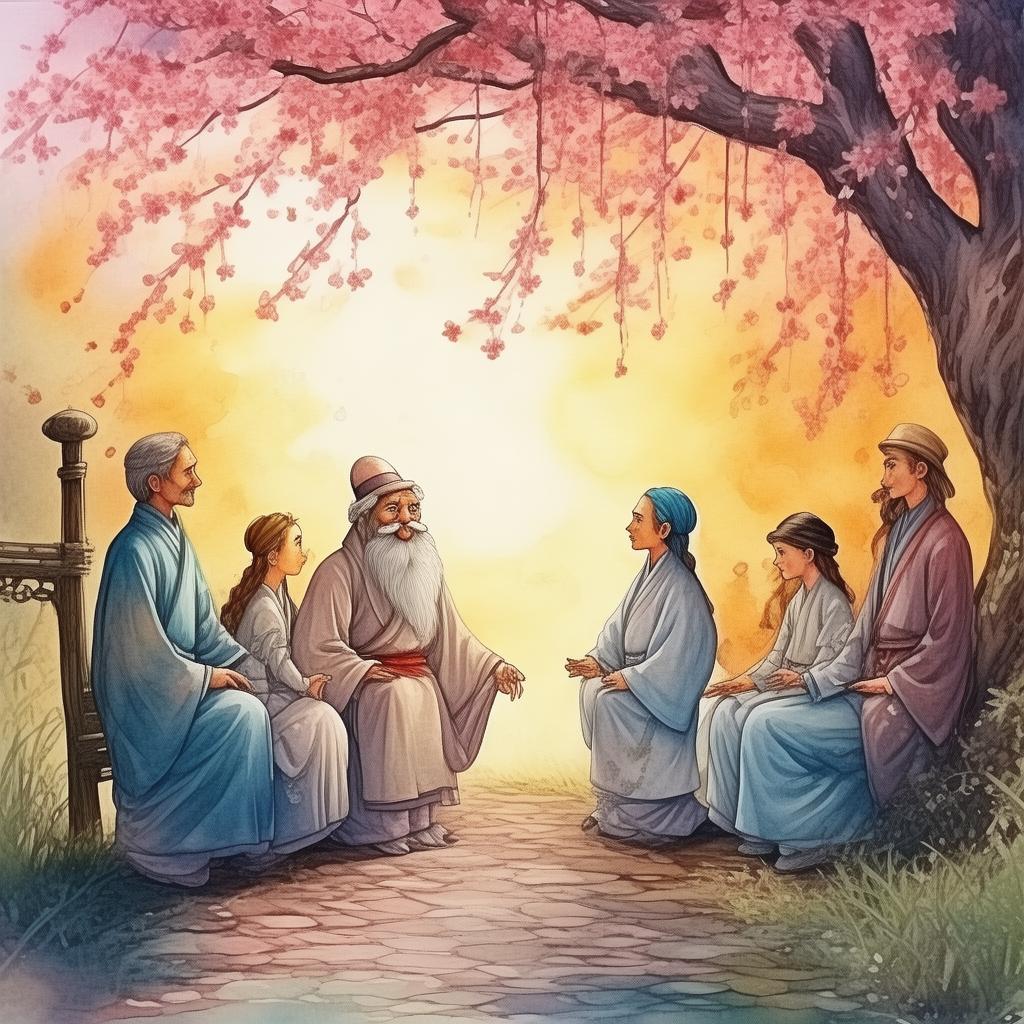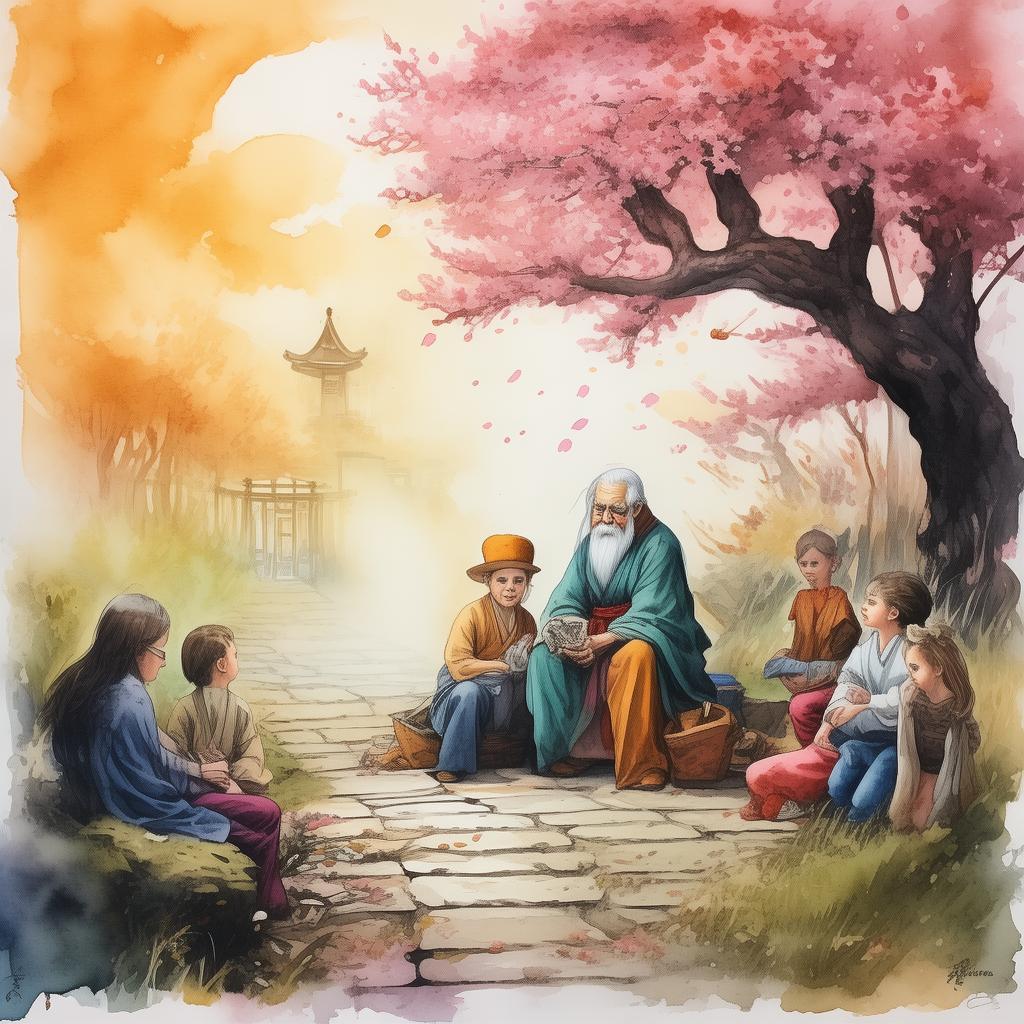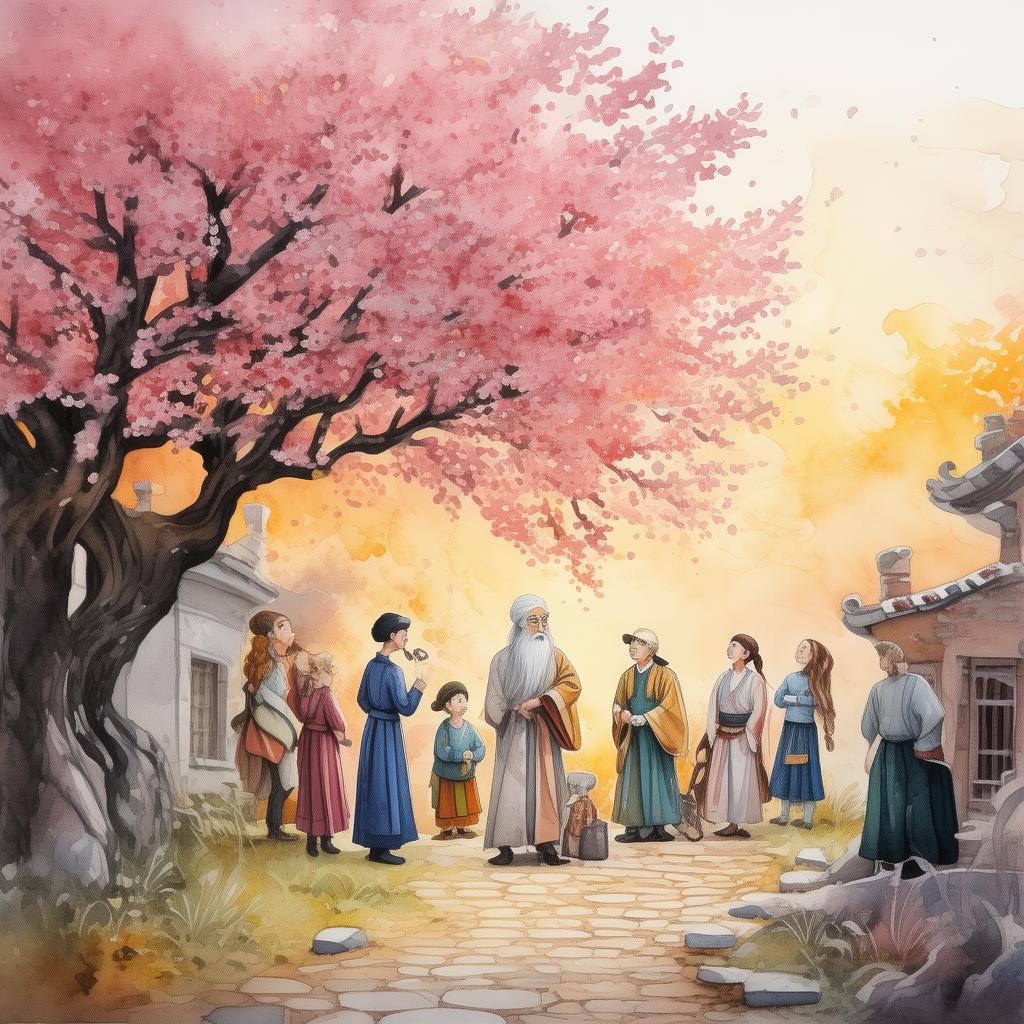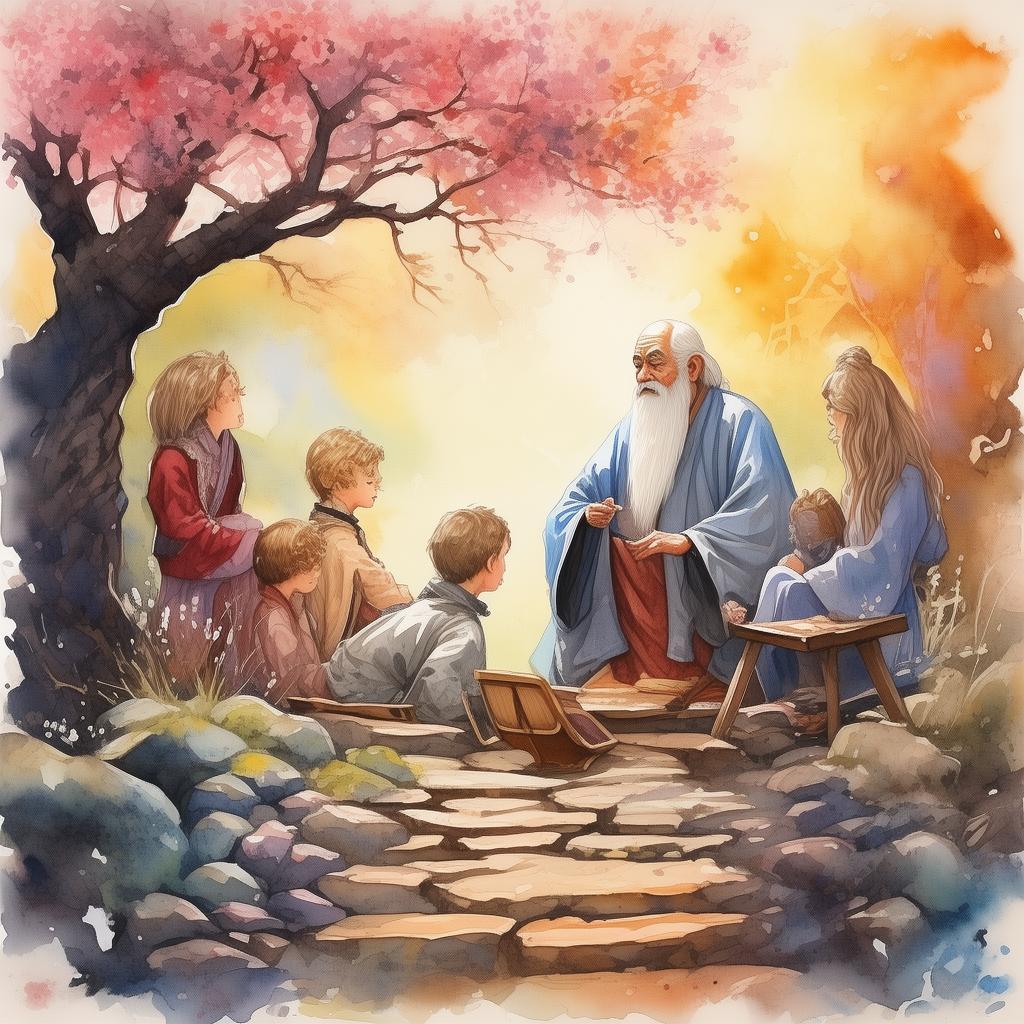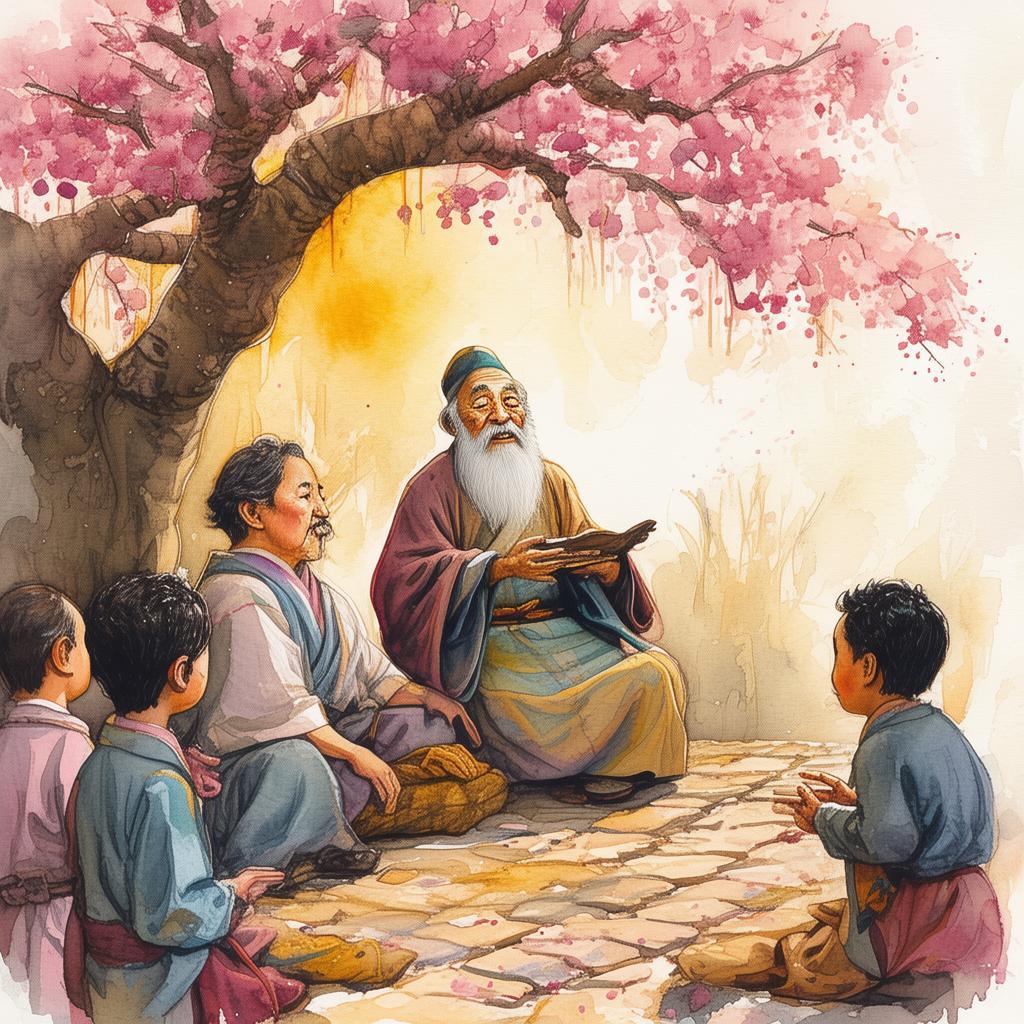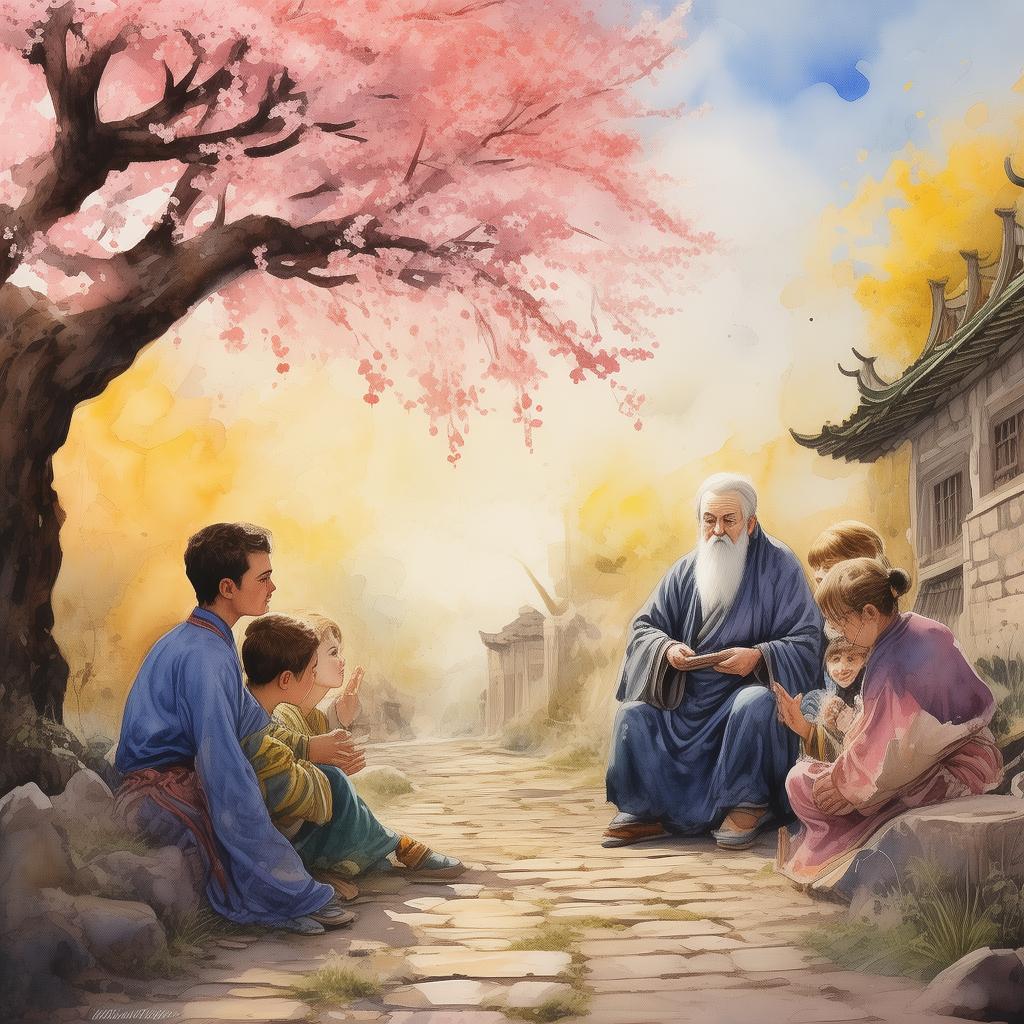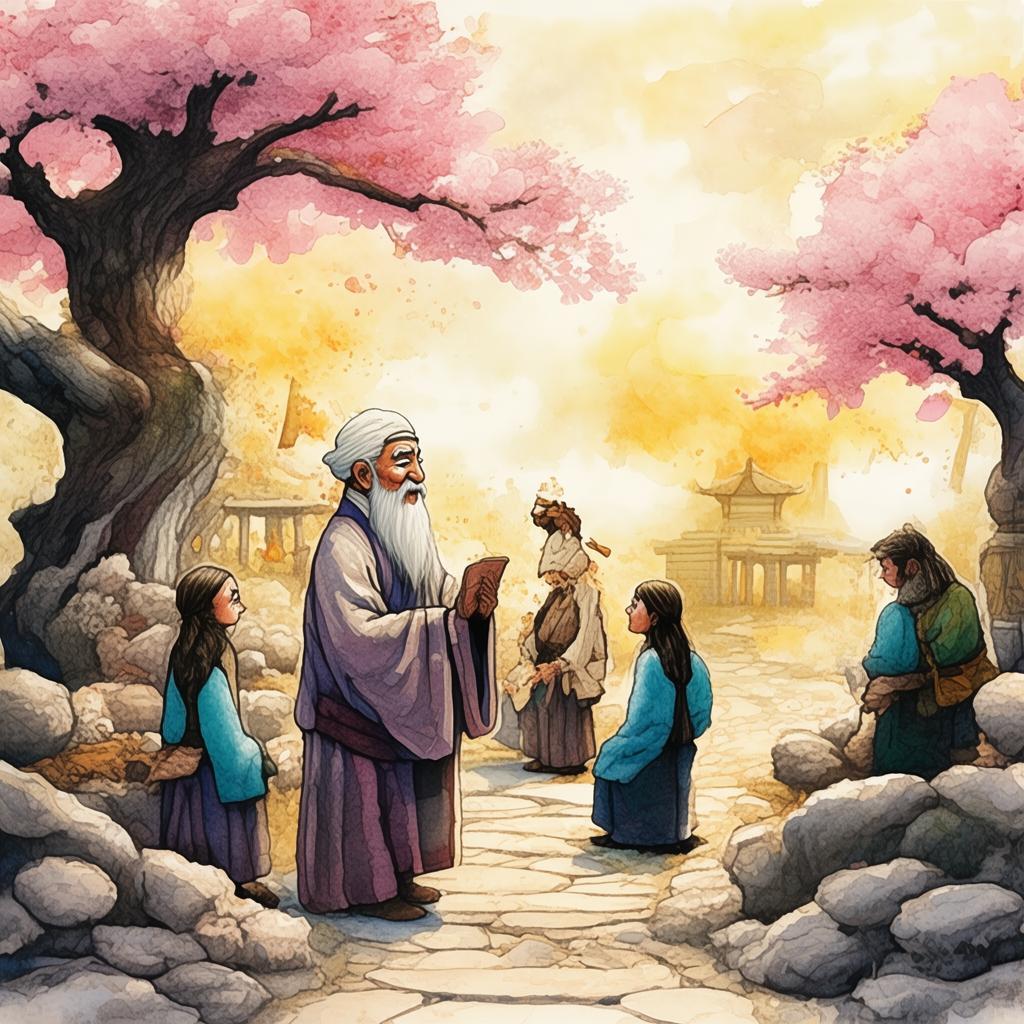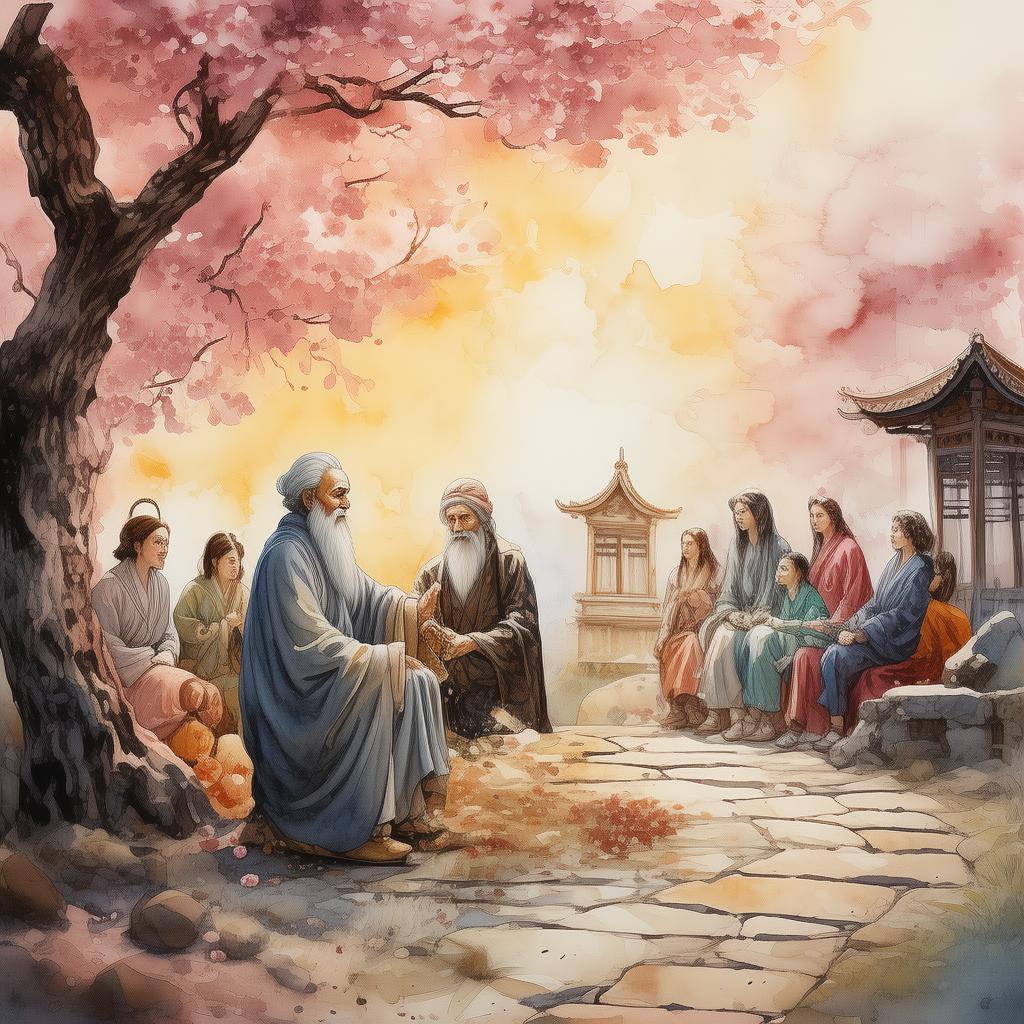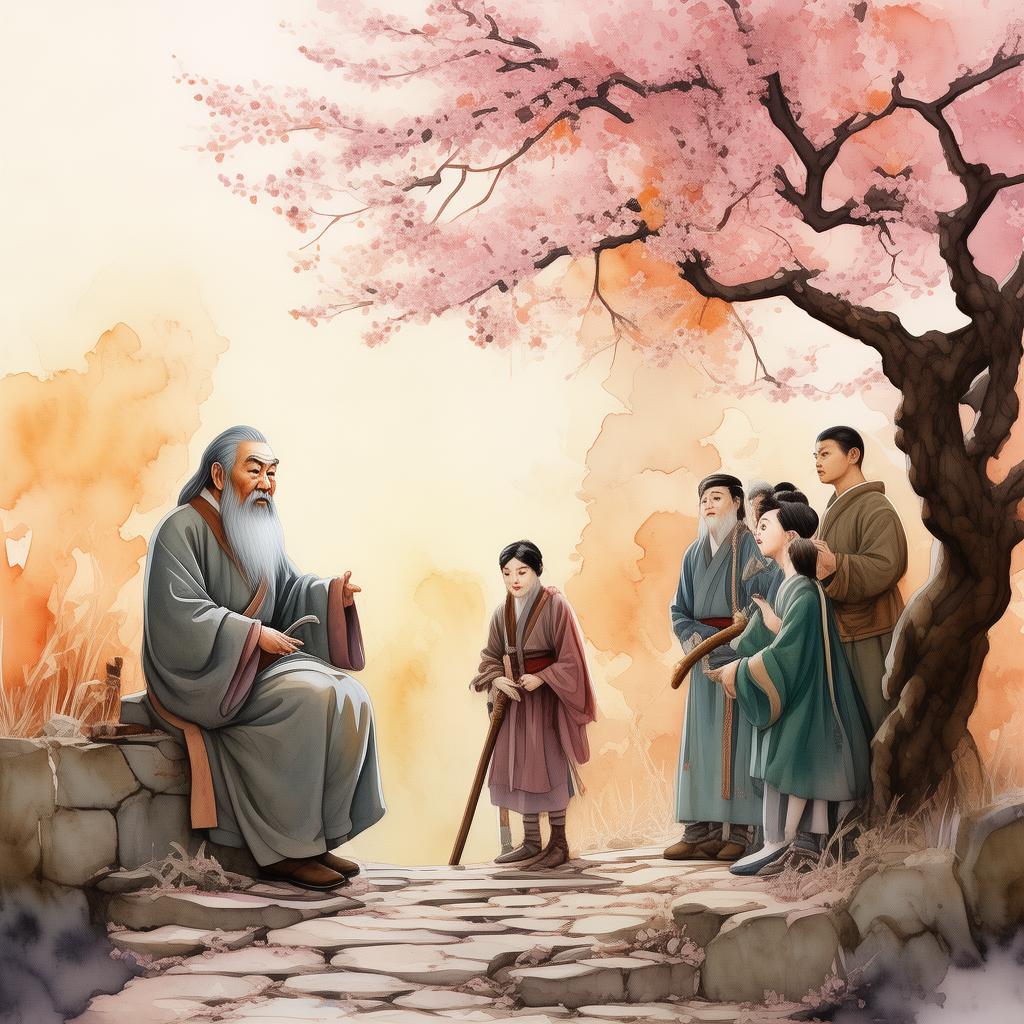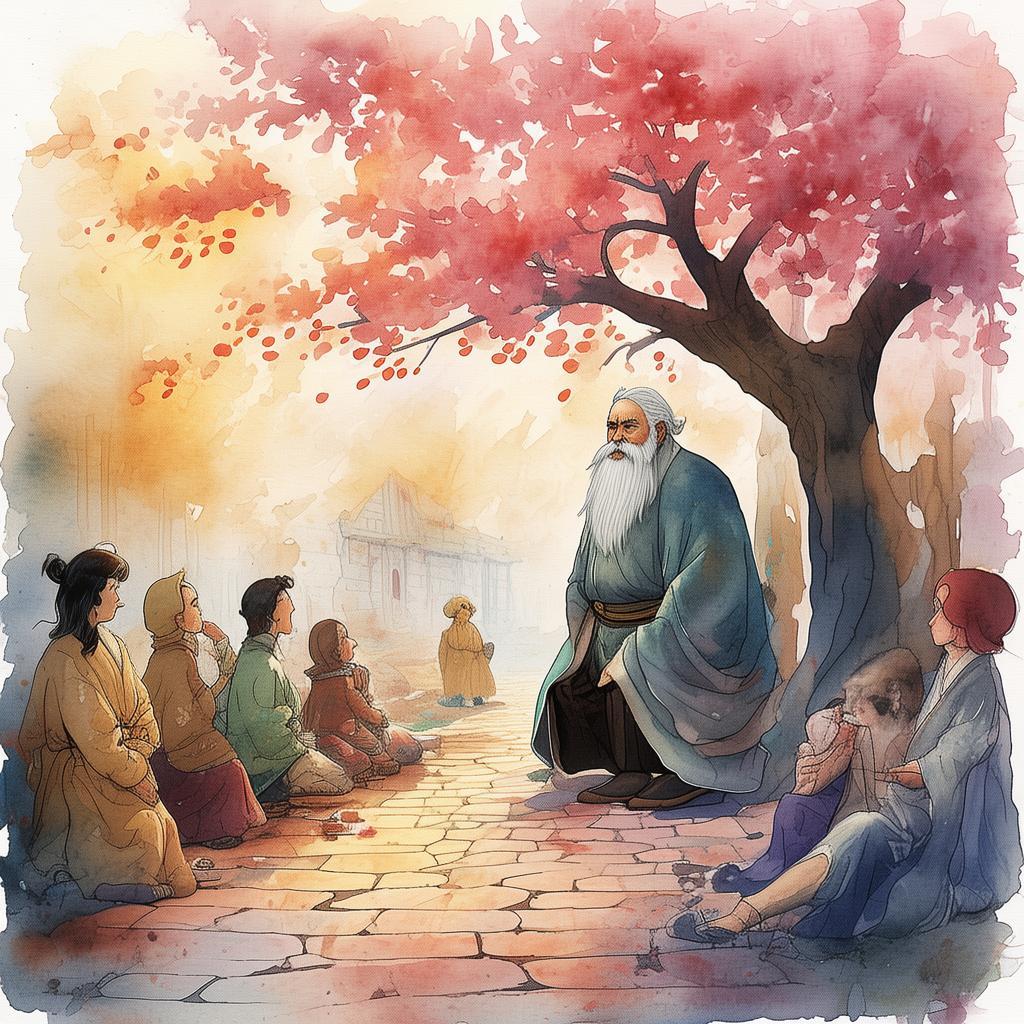Penances of the Paperless Monk
In the remote mountains of ancient China, there lived a monk named Ch'an. Known throughout the land for his Iron Will, Ch'an was a paperless monk, a practitioner of Zen Buddhism who had renounced all material possessions to seek enlightenment. His life was one of silence, meditation, and a deep connection to nature. His only companion was a small, weathered scroll, which he held dear, for it contained the teachings of the Buddha.
One morning, as Ch'an meditated by the edge of a serene lake, a sudden storm erupted, driven by winds howling through the ancient pines. The monk's shelter was a simple bamboo hut, and the storm threatened to destroy it. Ch'an, with his iron will, resolved to stand against the tempest and save his home. As the rain beat against the walls, he stood firm, his eyes closed, and his breath steady.
Days turned into weeks, and the storm continued. The monk's resolve was unshaken, but the scroll, the scroll that held his connection to the world beyond the mountains, was now soaked and crumpled. It was the only thing that remained of his life before his vow of renunciation. As the scroll lay on the floor, its pages flapping in the wind, Ch'an faced a moral dilemma: Should he save the scroll, which meant giving in to his attachment to material things, or should he allow it to be destroyed, thus fully committing to his path?
The villagers, seeing the monk's steadfastness, came to admire him, but they also brought with them news from the outside world. The scroll was a rare and precious artifact, said to contain the essence of Buddhist teachings. Some even offered to rebuild the hut and replace the scroll, but Ch'an declined, his heart and mind firmly fixed on his path.
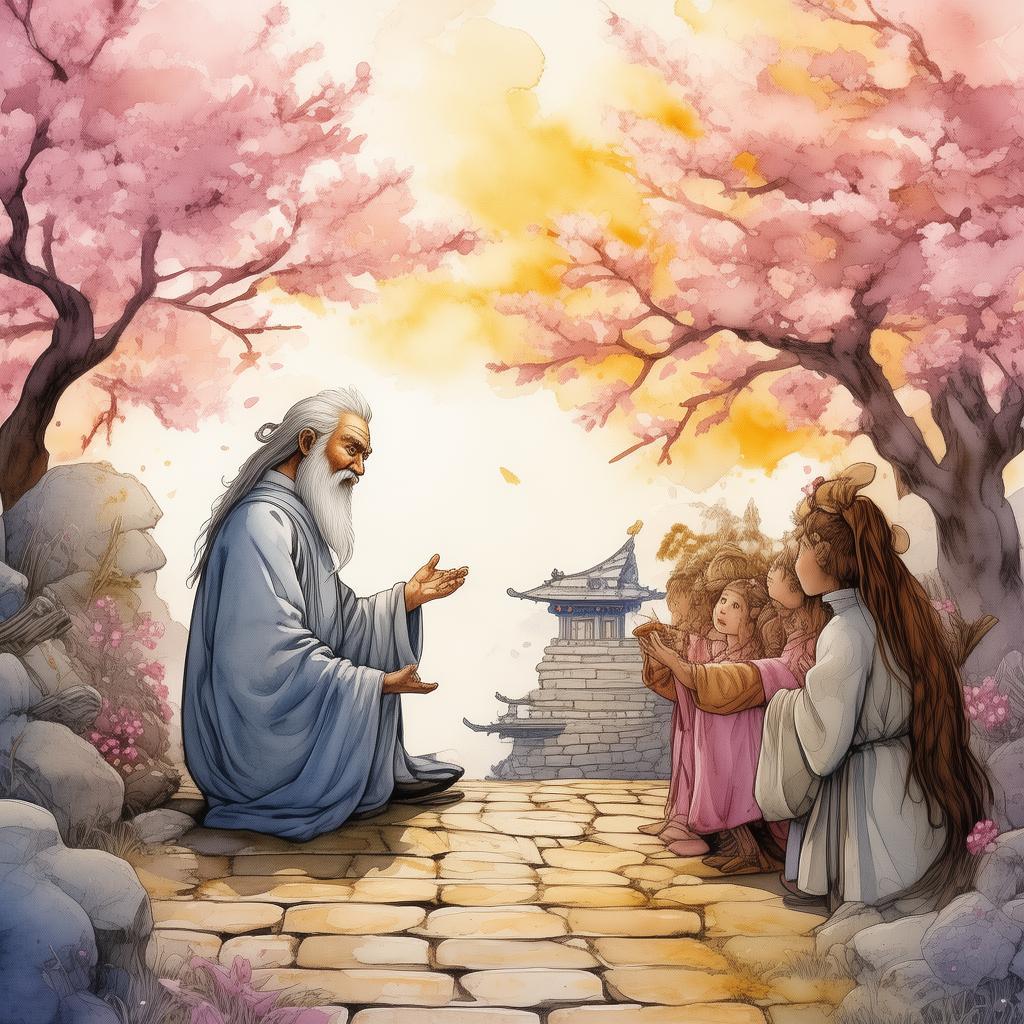
The villagers were perplexed. How could one so dedicated to enlightenment be so attached to a mere piece of paper? Yet, they could see the struggle within the monk. He spent countless hours meditating by the lake, his mind racing between his vow and the scroll's significance.
As the storm began to subside, a wise elder of the village approached Ch'an. "Monk," he said, "the teachings you seek are not found in scrolls, but in the very essence of your being. You must look within, for it is there that your enlightenment lies."
The elder's words struck a chord within Ch'an. He realized that the scroll was a symbol of his attachment, a reminder of the life he had left behind. It was not the scroll itself that was precious, but the journey of self-discovery and the commitment to his vow.
With a newfound clarity, Ch'an took the scroll, now dry but still crumpled, and allowed it to burn. As the flames consumed the symbol of his past, he felt a profound sense of freedom. The storm had passed, and the sky was clear.
From that day forward, Ch'an's path was unclouded. He continued his meditation and teachings, and the villagers, who once wondered about his resolve, now followed him with reverence. They saw in him a true Zen master, one whose iron will was not in his determination to resist the storm, but in his unwavering commitment to the true path of enlightenment.
The Iron Will of the Paperless Monk had been tested, and it had emerged stronger than ever. His story became one of legend, a tale of perseverance and the ultimate moral dilemma that led to enlightenment.
✨ Original Statement ✨
All articles published on this website (including but not limited to text, images, videos, and other content) are original or authorized for reposting and are protected by relevant laws. Without the explicit written permission of this website, no individual or organization may copy, modify, repost, or use the content for commercial purposes.
If you need to quote or cooperate, please contact this site for authorization. We reserve the right to pursue legal responsibility for any unauthorized use.
Hereby declared.
